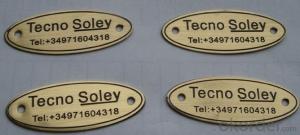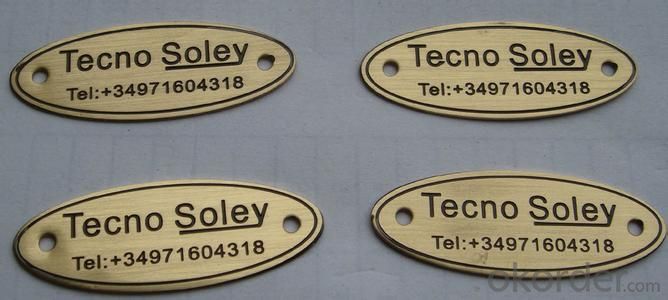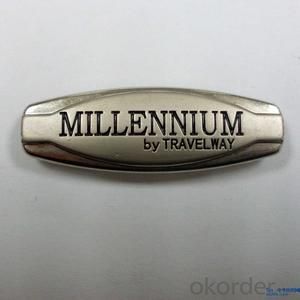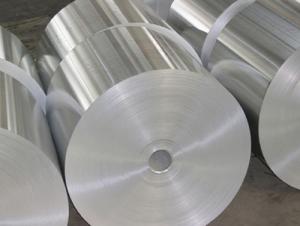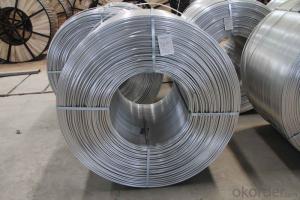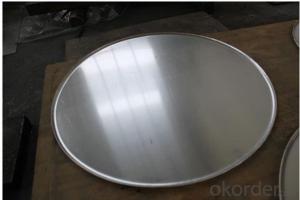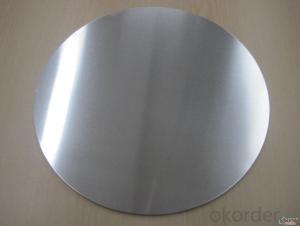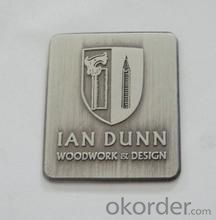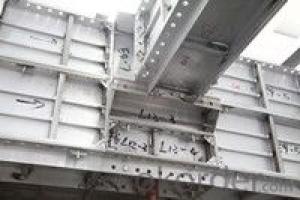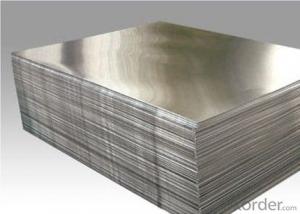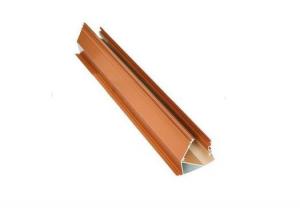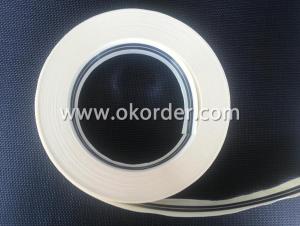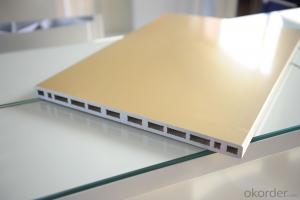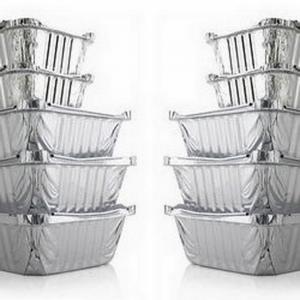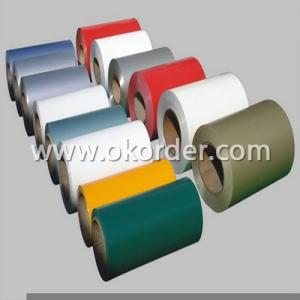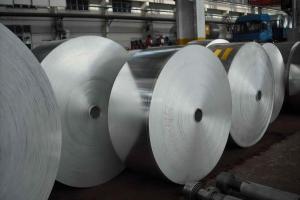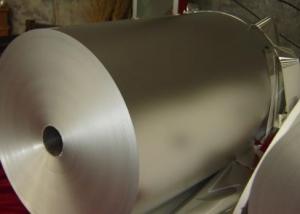Custom Aluminum Metal Name Plate
- Loading Port:
- China Main Port
- Payment Terms:
- TT or LC
- Min Order Qty:
- -
- Supply Capability:
- -
OKorder Service Pledge
OKorder Financial Service
You Might Also Like
Application:
Custom metal nameplate widely used for the following industry as a great customized, fashion & high quality accessory.
a. Garment industry: overcoat/jacket/suit/leisure suit/t-shirt/shirt/skirt/work-clothes/sports wear/jeans wear/trousers/pants and so on.
b. Bag industry: handbag/dust bag/school bag/purse/backpack/luggage and so on
Technique:
a. Custom metal nameplate electroplated in nickel free lead free metal color
b. Logo can be engrave/emboss/print or lasered
Quality contral:
a. 100% inspection before packing
b. Spot inspection before shipment
Packing details:
a. Standard seaworthy packing for long distance transportation;
b. 1 unit nameplate with a single poly bag;
b. 2,000pcs/ carton;
c. Size of carton: 60 x 30 x 26CM;
Shipment way:
a. DHL/Fedex/UPS/TNT by air for small orders, they will provide door to door service.
b. Suggest to settle the shipment by sea for mass production.
After-sale service:
a. Always provide our best after sell service for all oversea customers
b. Free replacement if find out any short or defective goods within 90days after shipment
Specifications
Custom metal product nameplate,scutcheon,logo label
1.High quality.
2.Competitive price.
3.Design per request.
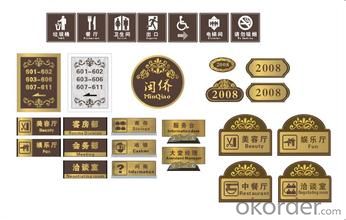
Advantage
1.Attractive with super quality.
2.Reasonable price in competitive quality.
3.Experienced technical staff.
4.Prompt delivery and satisfactory service.
Commodity:Warning sign | ||
Description | Material | Zinc alloy,copper,iron or customized |
Price | 0.1-1USD | |
Size | Customized | |
Design | Customized | |
Process | Casting,polishing,electroplating,painting | |
Color | Customized | |
Sample time | 7 days | |
Delivery time | 15 days | |
Payment Terms | T/T,Western Union | |
Packing | Details | 1 pc/opp bag or customizable |
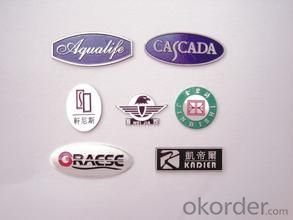
- Q: This question asks about the impact of aluminum on human health.
- <p>Aluminum is a naturally occurring element that can be found in small amounts in various foods, water, and air. While it's not considered an essential nutrient, it's also not inherently harmful in small quantities. However, excessive exposure to aluminum has been linked to potential health concerns. Some studies suggest that high levels of aluminum might contribute to neurological disorders, particularly Alzheimer's disease, although the evidence is not conclusive. Aluminum can also cause digestive issues and bone disorders if ingested in large amounts. It's important to note that the human body does not absorb aluminum efficiently, and most ingested aluminum is excreted without issue. However, it's always advisable to minimize exposure to high levels of aluminum, especially for vulnerable populations such as infants and those with kidney issues.</p>
- Q: Is it possible to create jewelry using pure aluminum?
- <p>Yes, pure aluminum can be used to make jewelry, but it's not commonly used for fine jewelry due to its lower value and potential for oxidation. While it is lightweight and affordable, it lacks the luster and durability of precious metals like gold, silver, or platinum. Aluminum can tarnish and may cause allergic reactions in some individuals. It is more commonly used in costume jewelry or for specific designs where its properties are advantageous.</p>
- Q: Is it safe or permissible to use aluminum in food packaging materials?
- <p>Yes, aluminum is commonly used in food packaging due to its lightweight, durability, and excellent barrier properties against air, moisture, and light. It is used in various forms such as aluminum foil, cans, and flexible packaging materials. However, it's important to ensure that the aluminum packaging is food-grade and complies with safety regulations to prevent any potential health risks associated with aluminum exposure.</p>
- Q: Is it possible to recycle aluminum without any loss in quality or performance?
- <p>Yes, aluminum can be recycled indefinitely without any loss in quality or performance. The recycling process does not degrade the material, allowing it to be reused multiple times. This makes aluminum one of the most sustainable materials for recycling. Each recycling saves up to 95% of the energy needed to produce new aluminum from raw materials, reducing the environmental impact significantly.</p>
- Q: What is the measure of aluminum's strength, specifically its yield strength and tensile strength?
- <p>Aluminum's strength is typically measured in terms of its yield strength and tensile strength. The yield strength of aluminum varies depending on the alloy and heat treatment, but it generally ranges from 10 to 45 MPa. Tensile strength, which is the maximum stress that aluminum can withstand before breaking, is typically between 90 to 600 MPa for different aluminum alloys. These values make aluminum a lightweight yet strong material suitable for various applications, including construction, automotive, and aerospace industries.</p>
- Q: This question asks about the potential health hazards that can result from exposure to aluminum.
- <p>Aluminum exposure has been associated with several health risks, although the scientific consensus is not entirely clear due to varying study results. Some potential health risks include neurological disorders such as Alzheimer's disease, although this link is still debated. Aluminum may also contribute to bone diseases, as it can interfere with calcium absorption. There are concerns about aluminum's role in kidney dysfunction and possible links to certain types of cancer. However, it's important to note that the human body naturally excretes aluminum, and only a small fraction of ingested aluminum is absorbed. More research is needed to establish definitive links between aluminum exposure and health outcomes.</p>
- Q: Is aluminum a suitable material for use in solar panels?
- <p>Yes, aluminum is commonly used in solar panels, primarily for framing and mounting purposes. It is a lightweight, durable, and cost-effective material that provides structural support and protection against environmental elements. While the photovoltaic cells themselves are typically made from silicon, aluminum's role in the assembly is crucial for the overall performance and longevity of the solar panel system.</p>
- Q: Is it possible to utilize aluminum in medical applications?
- <p>Yes, aluminum is used in medicine, though not directly ingested or injected. It is utilized in the form of aluminum salts in vaccines as an adjuvant to enhance the body's immune response. Aluminum is also used in medical equipment, such as in the manufacturing of certain types of surgical tools and implants due to its lightweight and corrosion-resistant properties. However, its use is carefully regulated due to concerns about biocompatibility and potential toxicity.</p>
- Q: Is it possible to develop allergies from exposure to aluminum found in food packaging materials?
- <p>While aluminum is commonly used in food packaging materials, the risk of allergic reactions to aluminum is generally low for most people. Aluminum is not a known allergen, and exposure through packaging is typically minimal. However, individuals with a rare condition called contact dermatitis may experience skin irritation from aluminum. For the general population, the risk of allergic reactions due to aluminum in food packaging is negligible. It's always important to monitor any unusual reactions and consult a healthcare professional if concerned.</p>
- Q: This question asks about the potential health hazards associated with exposure to aluminum in a work environment.
- <p>Working with aluminum can pose certain health risks, primarily due to inhalation of aluminum dust or fumes. Chronic exposure may lead to respiratory issues such as aluminum lung disease, characterized by shortness of breath and cough. Additionally, aluminum has been linked to neurological disorders, including cognitive dysfunction and memory loss. There's also evidence suggesting a potential connection to Alzheimer's disease, though this is not conclusively proven. Skin contact with aluminum can cause irritation or allergic reactions in some individuals. It's important for workers to use proper protective equipment and follow safety guidelines to minimize these risks.</p>
Send your message to us
Custom Aluminum Metal Name Plate
- Loading Port:
- China Main Port
- Payment Terms:
- TT or LC
- Min Order Qty:
- -
- Supply Capability:
- -
OKorder Service Pledge
OKorder Financial Service
Similar products
Hot products
Hot Searches
Related keywords
